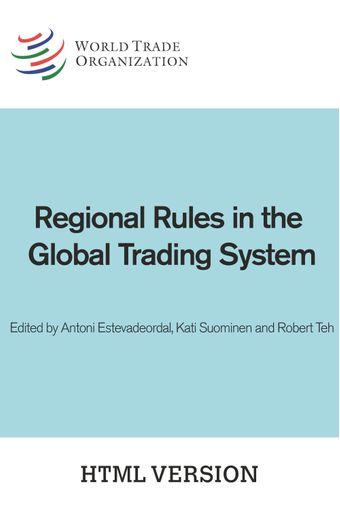Big-Think Regionalism: A critical survey

- De: Richard Baldwin
- Source: Regional Rules on the Global Trading System , pp 5-5
- Publication Date: enero 2009
- DOI: https://doi.org/10.30875/ab41460c-en
- Idioma: Inglés
In the late 1940s and 1950s, the profession’s best and brightest minds were focused on regionalism: Jacob Viner, James Meade, Richard Lipsey, Harry Johnson and Max Cordon, inter alia. The reason was simple. Europe’s post-war architecture was one of the world’s greatest problems and a free trade area was to be part of it, economists were muddled over the issue. The thinking of the 1950s straightened out the economics and established the intellectual paradigm that dominated the regionalism literature right up to 1991.1 The paradigm was framed around the Vinerian question: ‘Would a nation gain from joining various preferential trade configurations?’, This literature – what could be called Small-Think Regionalism – ignored systemic implications since the only large preferential arrangement – the EEC – was viewed as sui generis.
-
From This Site
/content/books/9789287046680c009dcterms_subject,pub_countryId-contentType:WorkingPaperSeries -contentType:Periodical -contentType:BookSeries -contentType:ReportSeries105


